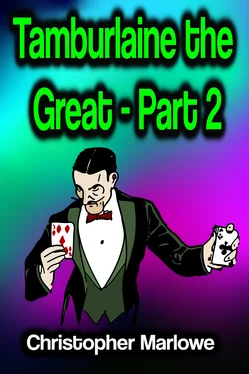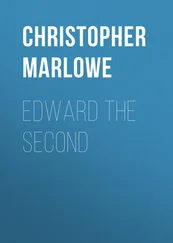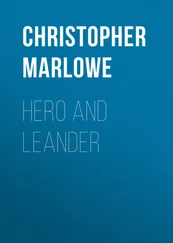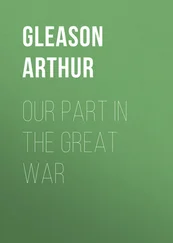ORCANES. By sacred Mahomet, the friend of God,
Whose holy Alcoran remains with us,
Whose glorious body, when he left the world,
Clos'd in a coffin mounted up the air,
And hung on stately Mecca's temple-roof,
I swear to keep this truce inviolable!
Of whose conditions 25 and our solemn oaths,
Sign'd with our hands, each shall retain a scroll,
As memorable witness of our league.
Now, Sigismund, if any Christian king
Encroach upon the confines of thy realm,
Send word, Orcanes of Natolia
Confirm'd 26 this league beyond Danubius' stream,
And they will, trembling, sound a quick retreat;
So am I fear'd among all nations.
SIGISMUND. If any heathen potentate or king
Invade Natolia, Sigismund will send
A hundred thousand horse train'd to the war,
And back'd by 27 stout lanciers of Germany,
The strength and sinews of the imperial seat.
ORCANES. I thank thee, Sigismund; but, when I war,
All Asia Minor, Africa, and Greece,
Follow my standard and my thundering drums.
Come, let us go and banquet in our tents:
I will despatch chief of my army hence
To fair Natolia and to Trebizon,
To stay my coming 'gainst proud Tamburlaine:
Friend Sigismund, and peers of Hungary,
Come, banquet and carouse with us a while,
And then depart we to our territories.
[Exeunt.]
Enter CALLAPINE, and ALMEDA his keeper.
CALLAPINE. Sweet Almeda, pity the ruthful plight
Of Callapine, the son of Bajazeth,
Born to be monarch of the western world,
Yet here detain'd by cruel Tamburlaine.
ALMEDA. My lord, I pity it, and with my heart
Wish your release; but he whose wrath is death,
My sovereign lord, renowmed 28 Tamburlaine,
Forbids you further liberty than this.
CALLAPINE. Ah, were I now but half so eloquent
To paint in words what I'll perform in deeds,
I know thou wouldst depart from hence with me!
ALMEDA. Not for all Afric: therefore move me not.
CALLAPINE. Yet hear me speak, my gentle Almeda.
ALMEDA. No speech to that end, by your favour, sir.
CALLAPINE. By Cairo 29 runs—
ALMEDA. No talk of running, I tell you, sir.
CALLAPINE. A little further, gentle Almeda.
ALMEDA. Well, sir, what of this?
CALLAPINE. By Cairo runs to Alexandria-bay
Darotes' stream, 30 wherein at 31 anchor lies
A Turkish galley of my royal fleet,
Waiting my coming to the river-side,
Hoping by some means I shall be releas'd;
Which, when I come aboard, will hoist up sail,
And soon put forth into the Terrene 32 sea,
Where, 33 'twixt the isles of Cyprus and of Crete,
We quickly may in Turkish seas arrive.
Then shalt thou see a hundred kings and more,
Upon their knees, all bid me welcome home.
Amongst so many crowns of burnish'd gold,
Choose which thou wilt, all are at thy command:
A thousand galleys, mann'd with Christian slaves,
I freely give thee, which shall cut the Straits,
And bring armadoes, from 34 the coasts of Spain,
Fraughted with gold of rich America:
The Grecian virgins shall attend on thee,
Skilful in music and in amorous lays,
As fair as was Pygmalion's ivory girl
Or lovely Io metamorphosed:
With naked negroes shall thy coach be drawn,
And, as thou rid'st in triumph through the streets,
The pavement underneath thy chariot-wheels
With Turkey-carpets shall be covered,
And cloth of arras hung about the walls,
Fit objects for thy princely eye to pierce:
A hundred bassoes, cloth'd in crimson silk,
Shall ride before thee on Barbarian steeds;
And, when thou goest, a golden canopy
Enchas'd with precious stones, which shine as bright
As that fair veil that covers all the world,
When Phoebus, leaping from his hemisphere,
Descendeth downward to th' Antipodes:—
And more than this, for all I cannot tell.
ALMEDA. How far hence lies the galley, say you?
CALLAPINE. Sweet Almeda, scarce half a league from hence.
ALMEDA. But need 35 we not be spied going aboard?
CALLAPINE. Betwixt the hollow hanging of a hill,
And crooked bending of a craggy rock,
The sails wrapt up, the mast and tacklings down,
She lies so close that none can find her out.
ALMEDA. I like that well: but, tell me, my lord,
if I should let you go, would you be as good as
your word? shall I be made a king for my labour?
CALLAPINE. As I am Callapine the emperor,
And by the hand of Mahomet I swear,
Thou shalt be crown'd a king, and be my mate!
ALMEDA. Then here I swear, as I am Almeda,
Your keeper under Tamburlaine the Great,
(For that's the style and title I have yet,)
Although he sent a thousand armed men
To intercept this haughty enterprize,
Yet would I venture to conduct your grace,
And die before I brought you back again!
CALLAPINE. Thanks, gentle Almeda: then let us haste,
Lest time be past, and lingering let 36 us both.
ALMEDA. When you will, my lord: I am ready.
CALLAPINE. Even straight:—and farewell, cursed Tamburlaine!
Now go I to revenge my father's death.
[Exeunt.]
Enter TAMBURLAINE, ZENOCRATE, and their three sons,
CALYPHAS, AMYRAS, and CELEBINUS, with drums and trumpets.
TAMBURLAINE. Now, bright Zenocrate, the world's fair eye,
Whose beams illuminate the lamps of heaven,
Whose cheerful looks do clear the cloudy air,
And clothe it in a crystal livery,
Now rest thee here on fair Larissa-plains,
Where Egypt and the Turkish empire part
Between thy sons, that shall be emperors,
And every one commander of a world.
ZENOCRATE. Sweet Tamburlaine, when wilt thou leave these arms,
And save thy sacred person free from scathe,
And dangerous chances of the wrathful war?
TAMBURLAINE. When heaven shall cease to move on both the poles,
And when the ground, whereon my soldiers march,
Shall rise aloft and touch the horned moon;
And not before, my sweet Zenocrate.
Sit up, and rest thee like a lovely queen.
So; now she sits in pomp and majesty,
When these, my sons, more precious in mine eyes
Than all the wealthy kingdoms I subdu'd,
Plac'd by her side, look on their mother's face.
But yet methinks their looks are amorous,
Not martial as the sons of Tamburlaine:
Water and air, being symboliz'd in one,
Argue their want of courage and of wit;
Their hair as white as milk, and soft as down,
(Which should be like the quills of porcupines,
As black as jet, and hard as iron or steel,)
Bewrays they are too dainty for the wars;
Their fingers made to quaver on a lute,
Their arms to hang about a lady's neck,
Their legs to dance and caper in the air,
Would make me think them bastards, not my sons,
But that I know they issu'd from thy womb,
That never look'd on man but Tamburlaine.
ZENOCRATE. My gracious lord, they have their mother's looks,
But, when they list, their conquering father's heart.
This lovely boy, the youngest of the three,
Not long ago bestrid a Scythian steed,
Trotting the ring, and tilting at a glove,
Which when he tainted 37 with his slender rod,
He rein'd him straight, and made him so curvet
As I cried out for fear he should have faln.
TAMBURLAINE.
Well done, my boy! thou shalt have shield and lance,
Armour of proof, horse, helm, and curtle-axe,
And I will teach thee how to charge thy foe,
And harmless run among the deadly pikes.
If thou wilt love the wars and follow me,
Читать дальше












